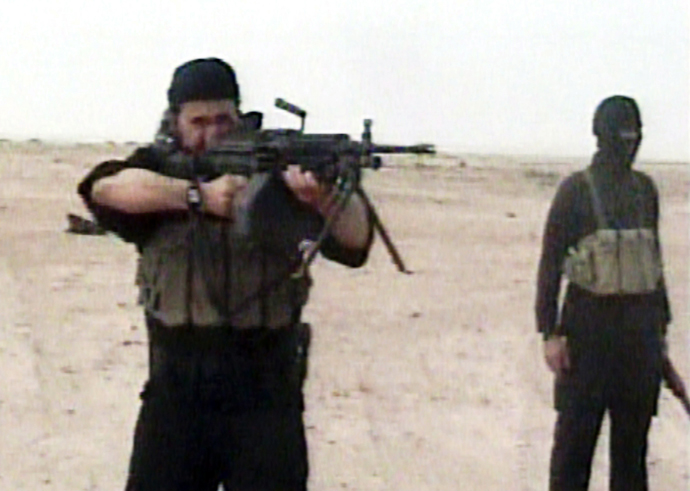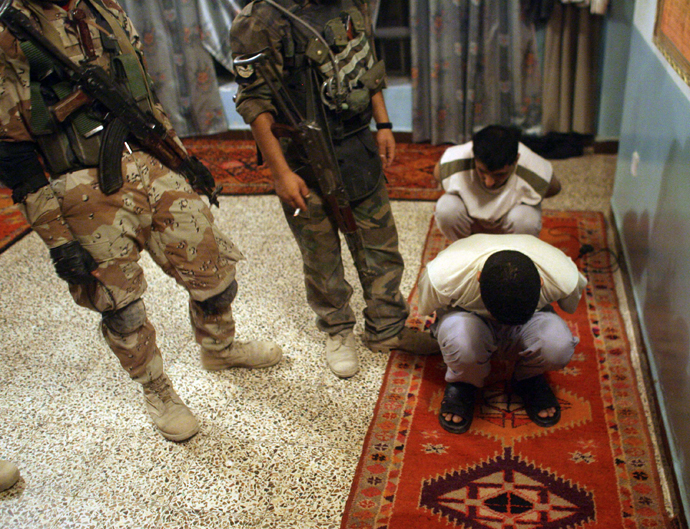‘Saddam’s fall has given Iran, Syria more power to withstand campaign against them’
Iran and Syria were among the primary beneficiaries of Saddam Hussein’s ousting, Middle East expert Ali Rizk told RT. If Hussein was still in power, he says, Iraq would still face sectarian problems - but Iran would be much more isolated.
RT:The Iraqi Prime Minister says the country's better off now than it was under Saddam Hussein - is that really the case?
Ali Rizk: Yes, that was his opinion in an editorial that
the country is better off. I think in some perspectives it might be
better off, and in other perspectives, it might not be. Of course
during the reign of Saddam Hussein, there was no doubt
dictatorship, torture, assassinations. People lived in fear. Many
Iraqis who I talked to, in particular those from the Shia sects and
Kurdish sects speak of the sufferings which they suffered, the
hardships they had to endure.
On the other hand after the toppling of Saddam Hussein, we have
to talk about the occupation which led to a lot of deaths and the
emergence of al-Qaeda, which was a result of the American presence
in that country. And now I think especially after the eruption of
the Syrian crisis, we have sectarians once again coming into or
invading Iraq. We had that before…and now it’s returning.

I think Iraq is unlucky, always witnessing bad days. The difficulties however vary from time to time but if we want to sum it in general, I think Iraq – despite the difficulties – still has the chance to emerge as an important player, especially in foreign policy. In the Syrian issue it is already playing a role and don’t forget that it’s a growing oil exporter, I think second according to OPEC.
So there is still potential for Iraq to further develop so maybe the ousting of Saddam Hussein was or will be in the long-term benefit of this country.
RT:When will the people feel the benefits though?
AR: I think the big crisis in the region – not just in Iraq but also in Lebanon and Syria – is sectarianism. I think Iraq is very vulnerable to sectarianism due to the presence of al-Qaeda. We just heard today a senior al-Qaeda official talking about a new title being given. The Islamic state in Iraq and the Levant referring to al-Qaeda in both Syria and Iraq.

So this issue of sectarianism, what is needed to address this, is that some countries need to change their behavior, particularly Saudi Arabia, Turkey, and Qatar – the same three countries we can highlight when it comes to the Syrian crisis. In particular, Saudi Arabia and Turkey appear to have a sectarian angle in the policies which they pursue and I think that it’ll be up to some of the allies of these countries and here I have to point out that I think the US if it wants to see stability as it says, it must use its leverage with Turkey and Saudi Arabia to put an end to this sectarian agenda, because this agenda and these policies being pursued by these states are triggering or fueling this sectarianism which we are seeing, particularly the protests which we saw in the Iraqi province of al-Anbar which is known to have a lot of al-Qaeda affiliates.
So what it comes to is that some countries in the Persian Gulf have to change their policies and their agenda which is based on fueling sectarianism, partly to weaken Iran – and we know Iraq is a strong ally of Iran.
RT:If Saddam Hussein was still in power, would we still be seeing these sectarian problems?
AR: I’m not sure you would have seen sectarian problems,
but I think you would have seen that Iran would be under immense
isolation. I think the primary beneficiary of Hussein’s ousting was
Iran. Now look at how one of Iran’s allies, Bashar Assad is facing
difficulties.
If Saddam Hussein would have been in power now at the time of
the Syrian crisis, I would presume 100% that Hussein would have
stood against Syria in order to weaken Iran he would have also
joined with the Persian Gulf Arab countries so I think the change
which occurred with the ousting of Saddam Hussein has a big
significance when you take into consideration the developments
which have taken place nowadays, the current policy big issues like
Syria and attempts to weaken Iran.
I think the presence of [Iraqi Prime Minister Nouri al-Maliki] has
given Iran some power to withstand the campaign which has been
launched against it, including the campaign which is targeting
Syria.
The statements, views and opinions expressed in this column are solely those of the author and do not necessarily represent those of RT.












